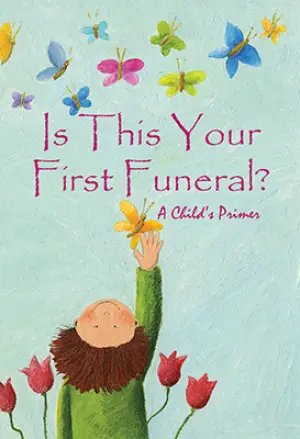Exploring the Depths of Grief and Technology: A Review of UnWorld by Richard Greene
As a book lover, I am often drawn to stories that intertwine human emotion with speculative ideas; it’s a complex dance of the heart and mind. Richard Greene’s UnWorld caught my attention not only for its intriguing premise—exploring consciousness and grief in a digital age—but also for its profound examination of what it means to truly connect with others in an increasingly fragmented world. This novel doesn’t just skim the surface of its ambitious concept; it probes deeply into the fears, hopes, and intricacies of human experience.
UnWorld unfolds through four distinct yet interwoven perspectives, weaving a tapestry of loss and discovery that is hauntingly beautiful. The central narrative revolves around Anna, who grapples with the overwhelming grief of losing her son, Alex, in a tragic incident that remains steeped in ambiguity. Greene masterfully captures her emotional turmoil with a voice that is both clinical and heartbreakingly tender, reminiscent of memoir-style writing. I found myself drawn into her world, feeling the weight of her sorrow as she navigated her clinical expertise in nursing against the rawness of her personal pain.
Samantha, Alex’s older friend and the sole witness to his death, offers a unique lens through which we explore the layers of Alex’s troubled psyche. As she revisits the site of the tragedy, her fragmented memories mirror the devastating effects of trauma. Greene brilliantly articulates her conflict with intelligent prose that crackles with youthful vigor—Samantha embodies the rare paradox of young maturity intertwined with the childlike search for understanding. This exploration of grief feels especially poignant; it echoes the real struggles faced by many young people today.
One of the most fascinating characters in UnWorld is Aviva, a digital consciousness born from human memories. She embodies complex themes of identity and existence, questioning the very essence of what it means to be human. Greene’s ability to write from her perspective—a consciousness so deeply rooted yet drastically evolved—felt like an exhilarating leap into the unknown. The technical challenge of such a character is not lost on him; Aviva’s sections are ethereal and thought-provoking, making the reader question their own understanding of self as she navigates her relationship with Anna and Cathy, another key character who earns her place in this chaotic symphony.
Cathy, a recovering addict turned AI professor, serves as the thread that ties these narratives together. Her desperate quest for connection, sometimes through dangerous means, adds another layer to this exploration of human fragility. Greene’s ability to intersperse complex philosophical discussions with emotional richness is commendable, though I found the pacing occasionally faltered as it strayed into didactic territory. Some passages felt dense, momentarily pulling me away from the raw emotional heart encapsulating Anna and Alex’s stories.
The prose itself is a lyrical marvel, shifting seamlessly between different voices while maintaining an underlying poetic quality. Greene’s writing unfurls like a series of memories—fragmentary yet deeply resonant. This stunning balance between the philosophical and the emotional makes UnWorld both a rich narrative and a contemplative experience.
If you enjoy speculative fiction that compels you to reflect on the human condition through the lens of technology, UnWorld is a must-read. It will resonate with those who appreciate personal explorations of grief, identity, and the complexities of modern existence. While Greene may not provide all the answers to his profound questions, he invites us to grapple with them, ensuring that readers walk away questioning their own understanding of consciousness, connection, and the weight of loss.
In closing, Richard Greene’s UnWorld is not just a novel; it’s a reflection on our digital age and the intricate ties that bind us, even as technology threatens to pull us apart. It is a haunting exploration that lingers in the mind long after the last page is turned.
Discover more about UnWorld on GoodReads >>






